ISPs, FCC Clash Over Net Neutrality Post-Chevron
FCC wants Sixth Circuit to reject ISPs' attempt to block net neutrality rules.
Ted Hearn
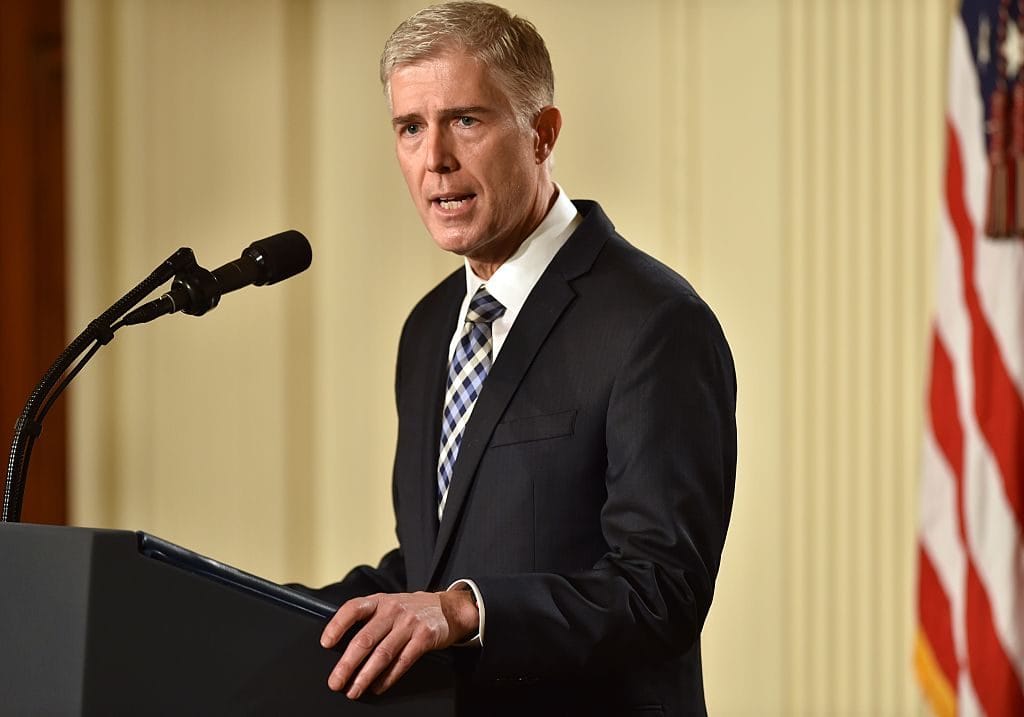
WASHINGTON, July 9, 2024 – In a filing Monday, Internet Service Providers urged a court to block the Federal Communications Commission's Net Neutrality rules, saying the agency's inconsistent approach to Internet regulation, coupled with Supreme Court precedent, was not entitled to judicial deference or respect.
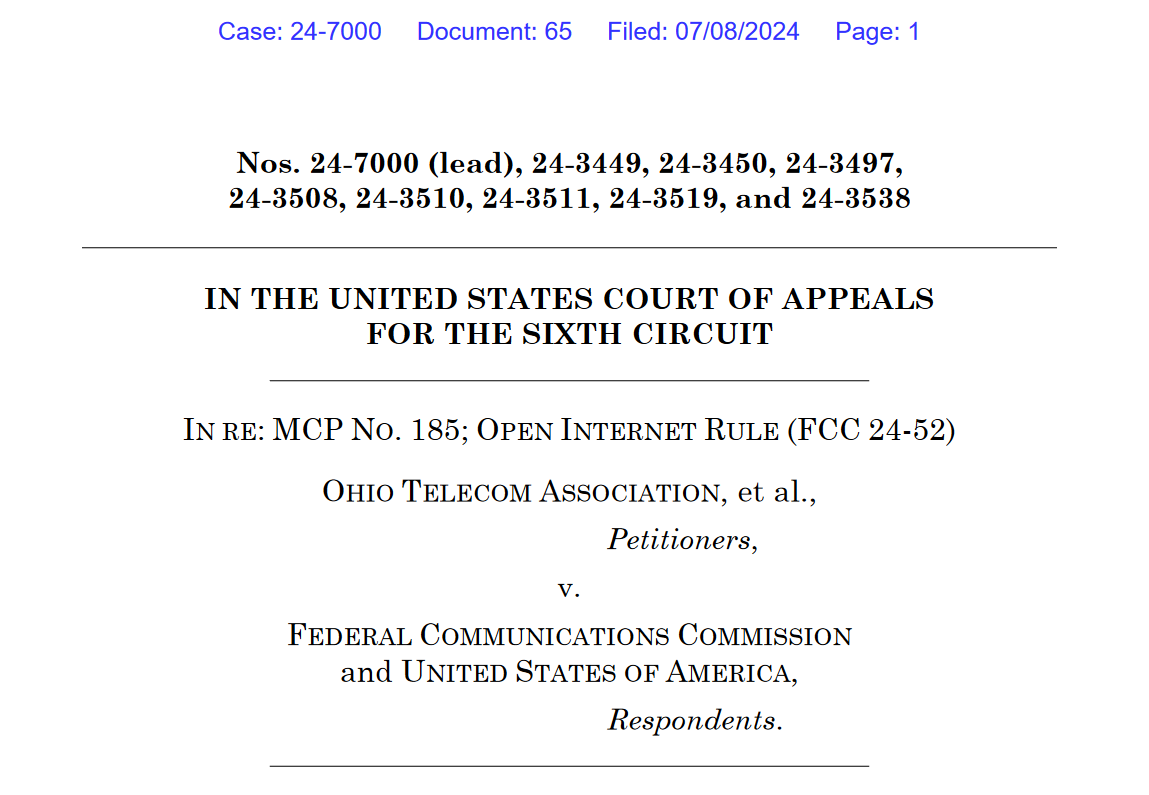
Supplemental Brief Regarding Loper Bright
"The only consistent thing about the FCC’s view of broadband – since 2015, anyway – has been its change with each new presidential administration," the ISPs said in a brief filed with the U.S. Court of Appeals for the Sixth Circuit in Cincinnati.
The FCC wants the rules to take effect as scheduled on July 22, saying the court needed to respect the agency's rules as the best reading of the law.
The ISPs and the FCC are squaring off in the Sixth Circuit just weeks after the Supreme Court overturned the agency-friendly Chevron Doctrine in Loper Bright Enterprises v. Raimondo.
Under Loper, federal courts no longer must defer to an agency's interpretation of vague laws if the agency's view is considered reasonable. Now, the court must decide all relevant questions of law.
In opposing ISP's stay request, the FCC is claiming the decision in Loper actually supported the agency's legal analysis.
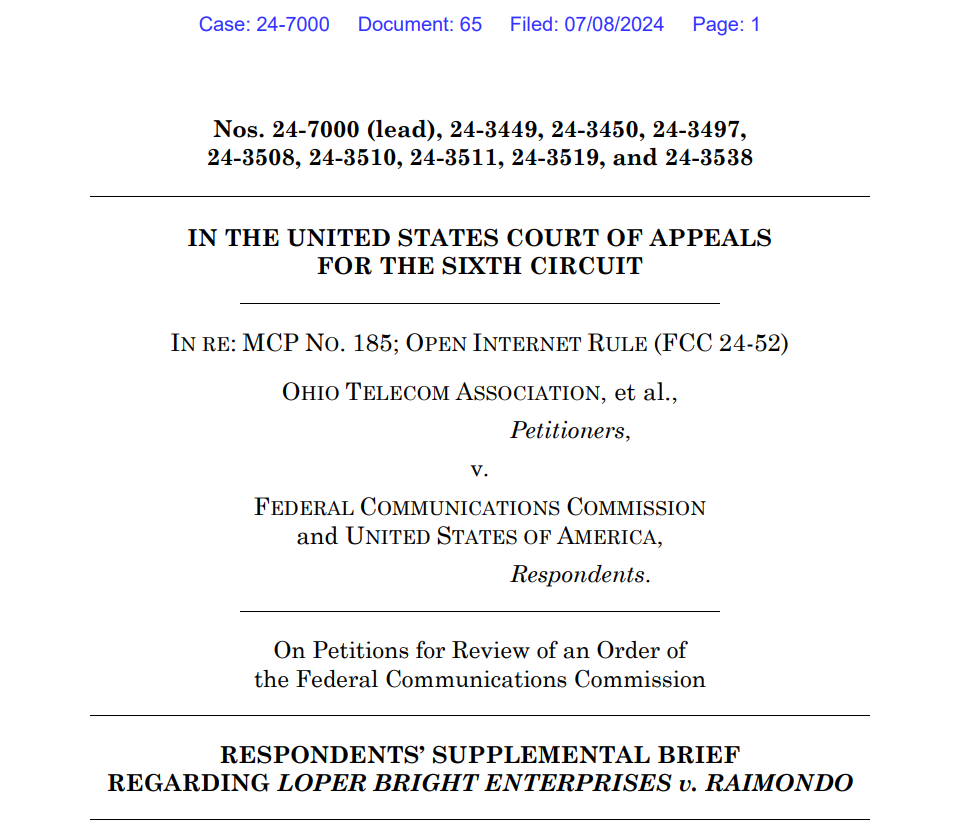
"Loper Bright has no direct relevance here because the [Net Neutrality] order under review does not turn or rely on Chevron," FCC attorney Scott Noveck said in a brief for the agency filed last night. "Instead, the order consistently focuses on ascertaining the best reading of the Communications Act using the traditional tools of statutory construction – exactly as Loper Bright instructs."
By saying it was relying on the "best reading of the law" in adopting the Net Neutrality rules, the FCC was referring to its classification of broadband access as a common carrier telecommunications service subject to utility-style regulation under Title II of the Communications Act.
The ISPs, represented by national and regional trade associations, urged the court to deny the FCC's “best reading” approach because the agency has repeatedly changed its mind - four times since 2002, according to Supreme Court Justice Neil Gorsuch.
"Indeed, the FCC's repeated flip-flops on Title II have become the poster child for inconsistency, and the antithesis of the sort of durable agency action that merits the judiciary’s respect," the ISP said.
The ISPs have asked the Sixth Circuit for a decision on the stay by July 15, perhaps leaving time to seek relief from Supreme Court Justice Brett Kavanaugh, who oversees the Sixth Circuit, if necessary.
The Sixth Circuit judges hearing the Net Neutrality case are: Chief Judge Jeffrey Sutton, Circuit Judge Eric Clay, and Circuit Judge Stephanie Dawkins Davis. Sutton was appointed by President George W. Bush, Clay by President Bill Clinton and Davis by President Joe Biden.


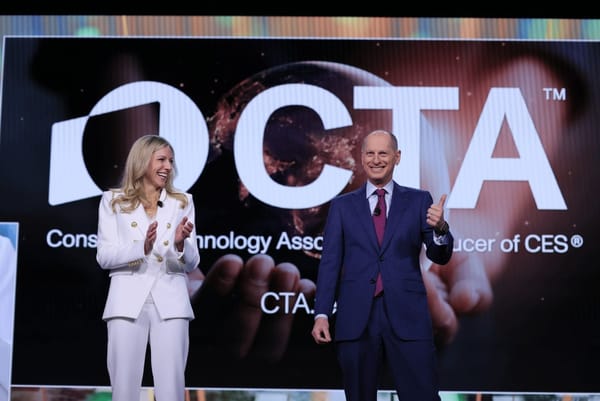
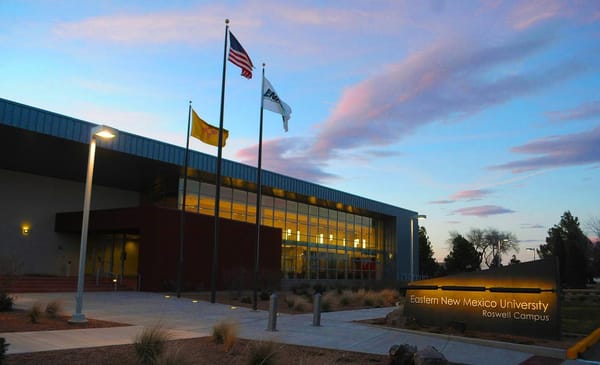
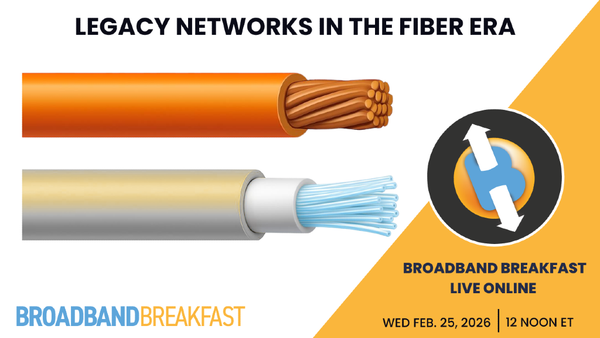
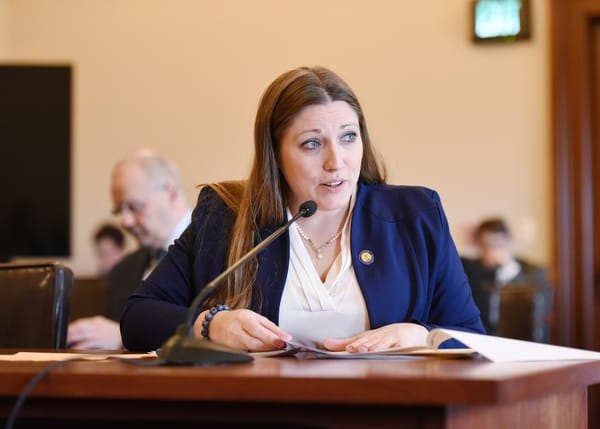
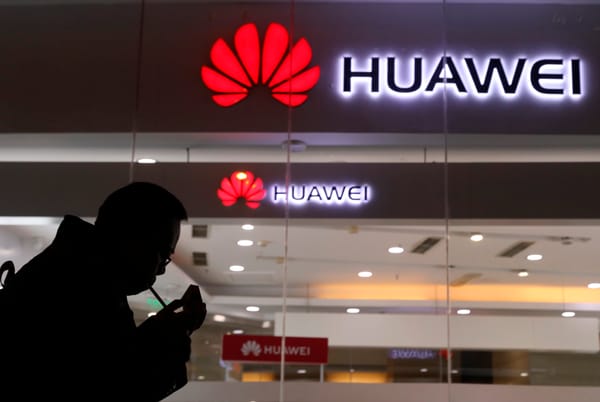



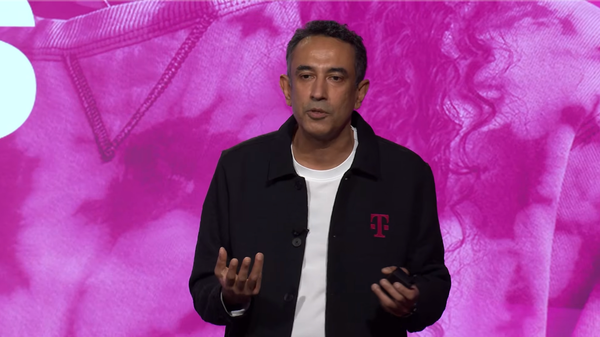
Member discussion